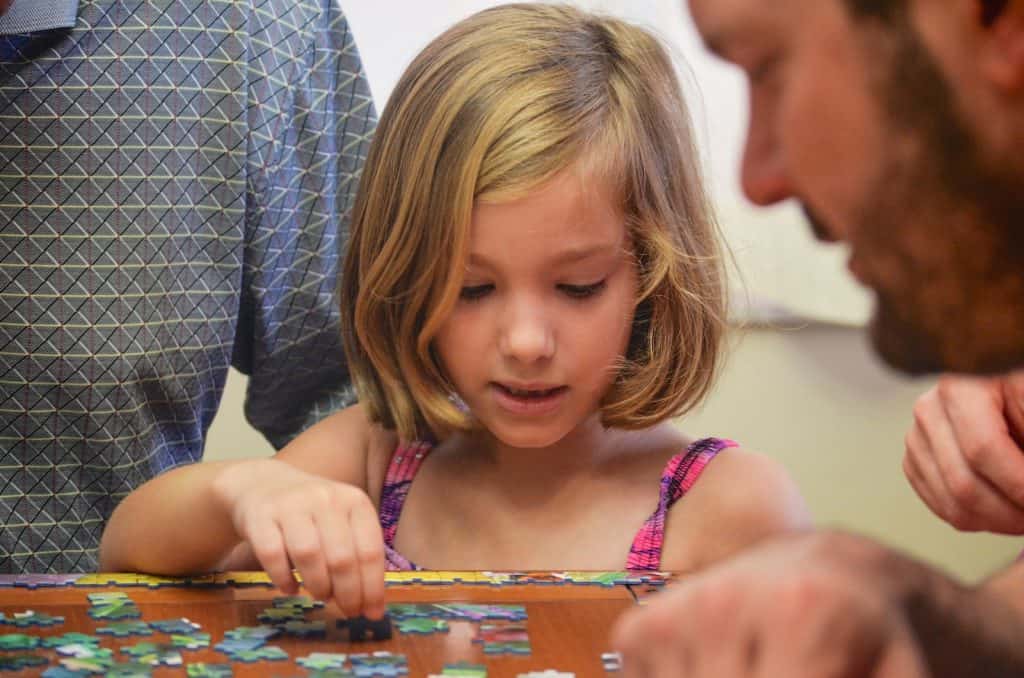In this article, we will delve into the question: do jigsaw puzzles help with ADHD? Attention Deficit Hyperactivity Disorder, commonly known as ADHD, is a neurodevelopmental disorder that affects both children and adults. People with ADHD often struggle with hyperactivity, impulsivity, and difficulties in sustaining attention. However, recent studies have suggested that engaging in activities such as solving jigsaw puzzles can help alleviate some of the symptoms associated with ADHD.
Do Jigsaw Puzzles Help With ADHD?
Jigsaw puzzles are a popular pastime that involves the process of putting together different puzzle pieces to create a coherent image. Many individuals find this activity stimulating and enjoyable, but can it be more than just a source of entertainment? Can solving jigsaw puzzles truly benefit those with attention deficit hyperactivity disorder?

One theory suggests that jigsaw puzzles promote positive effects on cognitive abilities and sustained attention, two areas where individuals with ADHD often struggle. The act of manipulating puzzle pieces and working towards the completion of the puzzle requires focused attention and problem-solving skills. As individuals with ADHD tend to lose focus quickly, engaging in this task can help improve their ability to sustain attention and stay on task for extended periods.
Furthermore, solving puzzles can enhance logical thinking and spatial awareness. The process of deciphering which puzzle piece fits requires individuals to employ their cognitive skills, such as reasoning and planning. This can be particularly beneficial for those with ADHD, as it encourages them to utilize their cognitive abilities and think critically, helping train their brain to process information in a more structured manner.
Another significant advantage of jigsaw puzzles is their ability to induce a state of hyperfocus. Hyperfocus is a state in which individuals become completely absorbed in a task or activity, effectively blocking out distractions. For individuals with ADHD, who often struggle with impulse control and maintaining focus, experiencing a hyperfocused state can lead to improved attention and reduced restlessness. Engaging in puzzle-solving provides a structured task that can guide them into hyper focus land, allowing them to channel their energy and attention productively.
Apart from the cognitive benefits, solving jigsaw puzzles can also provide social interaction. This therapeutic activity can be enjoyed individually or with others, allowing individuals with ADHD to engage in a collaborative activity that can strengthen social bonds and improve their overall well-being. Working on a puzzle with friends or family members can create a sense of achievement and satisfaction, thereby reducing stress levels and enhancing their mood.

Furthermore, the act of solving puzzles can have a soothing effect on individuals with ADHD. As they focus on the task at hand, their mind can find solace in the organized and predictable nature of puzzle-solving. This sense of order can provide a calming effect, allowing individuals with ADHD to experience a break from the chaos and unpredictability of their everyday life.
One piece at a time, jigsaw puzzles can become a metaphor for life with ADHD. The fragmented pieces symbolize the scattered thoughts and ideas that go through the ADHD brain, while the act of putting them together represents the process of creating a cohesive world. By engaging in this puzzle-solving activity, individuals with ADHD can develop a sense of accomplishment and improve their ability to solve the puzzles of life.
In conclusion, the question of whether jigsaw puzzles help with ADHD seems to be answered positively. The process of solving puzzles can improve focus, impulse control, working memory, and social interaction, all of which are areas commonly affected by ADHD symptoms. Additionally, engaging in this therapeutic activity can reduce stress levels and enhance overall well-being. So, the next time you are feeling a bit puzzled by ADHD, consider picking up a jigsaw puzzle and see if it helps you put the pieces of your life together.

